- Home
- Kathryn Lasky
Elizabeth Page 2
Elizabeth Read online
Page 2
I knew, of course, before Sir Anthony arrived. Anne of Cleves had followed me out as I left the Great Hall. I felt this spray of spittle on the back of my neck. “I vill speak to him, Elizabeth. I vill try to say something to change his mind. I vill. I vill!”
5 July, 1544
Anne of Cleves came to my apartments today. She could not change his mind. The King’s retinue leaves in an hour for Dover. We leave for Hatfield two hours later. I am so sad. My presence is commanded at the east gate as they leave. I shall not deign to record the ceremony and pageantry of their leave taking in this diary. In fact, I shall close my eyes as they pass by.
10 July, 1544
Hatfield
It was quite remarkable; even before we left Greenwich Palace I felt the change. My Ladies of the Chamber, the ones who take care of Kat’s and my sewing and laundry, had been reduced from three to one. Instead of three horse grooms, we travelled with one.
The servants who are left with us answer less quickly and are often inattentive – sometimes even surly. Why? It’s very simple, really. This is not Court. Some even say I am an illegitimate princess. And then again they listen to all the gossip. You see, they say my mother was a witch. On her left hand she had a sixth finger, just a bit of a nub, naught more. She was always careful to hide it by having her gowns fashioned with long sleeves. But they say it was the mark of a witch. My father says he realized too late that he had been “transfixed” by Anne Boleyn.
So often when my father does look at me, he thinks me half witch. It is a strange predicament, because in many ways I am more like him than either Prince Edward or Princess Mary. We both have red hair, and I, of all the children, have inherited the largest share of his musical talent. I often wonder what he would have felt if I had been born a boy. Would he have then thought me half witch? I was supposed to be a boy. All the astrologers had predicted a boy. The announcements of the birth of a prince had been engraved. And then I was born. They had to squeeze in two s’s. I have a copy of that announcement because of Princess Mary, who gave it to me and kindly pointed out the additional s’s.
However, even with two ses, this Princess shall begin to be forgotten again. I shall fade into the dark greenery of the wooded parkland. Oh, to shine as brightly in my father’s eyes as Robin does in the eyes of his father.
11 July, 1544
It rains. No playing outdoors. No pony riding or archery practice. Much Greek and Latin. The Queen manages quite well to see to my studies from afar. There is a continual flow of books from her, particularly those on moral philosophy, and I am expected to read them and answer the Queen’s questions, write little essays, oftentimes in Greek or Latin. The Queen says she demands much of me because I have a superior intellect. And Kat says that her nurturing of my mind is a sign of true love and devotion, as much as any mother would have for her own daughter. So I vow to work hard. Kat is such a dear, but even Kat now admits that my mastery of Greek and Latin is equal to hers. I practise daily the beautiful Italian script with its lovely loops and flourishes. My handwriting is so spidery when I write in this diary, but I am going to practise my name in the Italian style on this page.
12 July, 1544
Still rains.
13 July, 1544
Still rains. I shall not merely fade and be forgotten – I shall most likely dissolve entirely with this weather.
14 July, 1544
At last, no rain! Rose this morning as usual for Matins at six. I could tell by the Chaplain’s voice immediately that the weather was drier. I must admit that in Chapel I was not thinking about God. I was thinking about being Queen. Not myself, mind you, but Catherine Parr. She is now Queen in more than just title. She is Queen Regent and rules in my father’s absence. It is she who must deal with the Privy Chamber councillors and make the decisions. Catherine Parr is so wise and learned, I know she will be a good regent. It saddens me that I cannot be with her now. I enjoy her company and I would like to be near her and see how she talks to the Privy Councillors. (Do they honour her and show respect for her office?) I cannot help but wonder what it might be like being in the Court of a Queen who at this moment in history is the sole ruler of England. There never has been a ruling Queen of England. Just Kings. And if she is the sole ruler, could she not restore me from exile?
15 July, 1544
Kat helps me with my Italian script, but I can teach her something about archery. That is the only thing good about Robin not being here. I am the best archer at Hatfield, I think. Of course, there is hardly anybody here at Hatfield. No children and the barest staff. So it is hardly a competition. I suppose I am the best at Greek and Latin, too, and who knows – maybe the best rider, seeing as none of the King’s riding boys are here.
I am so lonely. I wonder if Father ever thinks of me when he is abroad and on campaign. I wonder if I was more lovable as a baby – before I could talk or sing songs with upsetting words. I wish I could remember what it might have been like to be a tiny baby and cradled in his arms, and hear his voice sing a lullaby to me.
17 July, 1544
It seems when one is out of the Court, other things are parcelled out in small doses beyond servitors and riding boys – good weather, to be specific. It rains again. A messenger arrived from Westminster Palace and reports it has been nothing but sunny in London. Kat and I play cards and of course there is the interminable needlework. I have at last mastered the backstitch, but I am careful to make a few mistakes because I do not want Kat to advance me yet to the satin stitch. Although needlework is rather mind-numbing, when one has a certain level of skill with a particular stitch, one can just do it and still talk. I enjoy so much my conversations with Kat.
For example, tonight when we chatted, I asked her why Master Holbein, the finest Court painter, when sent to paint Anne of Cleves’s portrait before my father married her, made her look much fairer in complexion and did not show the pits in her skin. Kat said that Master Holbein never painted pockmarks, and I supposed my father did not think to ask beforehand if she had had the disease. Oh, God, I hope I never do get the smallpox. There is a cook and her daughter at Hampton Court who have pits as big as the holes in the embroidery cloth. Anne of Cleves’s pits are not nearly that bad. It was not just the pits, however. It seemed that every bit of Anne of Cleves’s appearance offended Father in some way. But my father is no longer such a beauty himself. The last time Holbein painted him, they had to bring up a larger throne, for he did not fit into the one they had planned to use for the portrait. It was a family portrait. Princess Mary and I were left out, which seems odd, seeing as Holbein did include others who were long dead, such as Jane Seymour, Father’s fourth wife, and his mother and father. Oh, well, there is no telling with my father. But when his humours are in balance in regard to me, I can honestly say there is no one with whom I would rather be. He can be as playful as a child, full of sport and jest. I just wish he were not so fat.
20 July, 1544
I have thought much in these past few rainy days about the notion of writing to the Queen concerning my exile. I prayed this morning in Matins, and the answer came to me with such clarity I know it is right. I may write to Queen Catherine, but I must not put the burden of the decision on her. This would be unfair and could cause for trouble between her and my father. And the very last thing on Earth I ever want is trouble between my father and his wife. This I know as well as I know anything. Never again those horrible days at Hampton Court before Catherine Howard’s death. I think I should just write to her not as Queen Regent but as my mother, and ask that she make a request to the King on my behalf. Furthermore, I think I should write to her in Italian, as it means so much to her that I master this language and even the script.
22 July, 1544
I am happy for the rainy days as they give me opportunity to work on my letter to the Queen. Kat, by the way, thinks this is an excellent idea. She says she will h
elp me with some of the phrasing, but I do not want her to until I have at least two drafts. The voice must be mine even if it is in Italian – not of course my diary voice, but my respectful, daughter-of-the-Court voice.
24 July, 1544
I have a draft of the letter and shall send it soon to Westminster Palace.
28 July, 1544
I received a letter from Princess Mary today. She is full of concern for me and said if it were in her power, she would send one of her Chaplains to assist Chaplain Huntley here at Hatfield. I would rather she sent one of the King’s riding boys. How many Chaplains does it take to pray, after all? But, of course, Mary thinks I should pray much more. She writes in her letter, “Dear Sister, What really matters is that God be first in your heart and then you shall be first in His.” Then she suggests that I would not mind nor think about this banishment if I would pray more. I would mind just as much!
I come back to that old tiresome quandary. I simply cannot believe that the same father with whom I bowled, scarce a year ago, would now exile me. Mary says that if one prays, one is never an exile in God’s heart. I will only confess this to you, dear Diary, but in all honesty I do not much care where I am in the Lord’s heart. What I really want to know is where am I in my father’s?
1 August, 1544
Sent off the letter to Queen Catherine yesterday.
7 August, 1544
Have not written for a week because the rain stopped, and after all these days of being shut indoors, Kat and I felt compelled to spend every minute outside. The roses in the garden have a touch of rot from the wet weather, but do look glorious on a sunny day. The Tudor rose, which Father insists that every gardener at each palace attempt to grow, actually flourishes well here. It is a red and white rose, both colours in one.
8 August, 1544
It was almost exactly one year ago that Edward and Mary and I accompanied Father and Catherine Parr to Woodstock. We all felt so safe and happy at Woodstock. The plague had broken out in London early on in the summer. That was when Father first fled with Edward. He had engaged Catherine Parr as Edward’s tutor, and then they simply fell in love. How things change so fast! Catherine began as a tutor and became a Queen. I began as a Princess and have become twice now within one year an exile! But my father is not a cruel man. I refuse to believe that. He is a man of whims and sudden rages, but I know he must love me. He just must.
9 August, 1544
Miracle of miracles – another sunny day, well over a week without rain! I shall go out this afternoon and gather some pennyroyal for my father. He does like his pennyroyal mixed with civet and musk for his bath. It helps his aching joints. I do pray that my father is not wounded as he wages his war in France. But they say it goes well – that he is within striking distance of Boulogne now. That is his goal, to lay siege to the city and teach King Francis I of France a lesson about England’s power.
10 August, 1544
I received my third letter from Princess Mary today. She is consumed with the state of my soul and bids me to pray still more. Has she nothing more interesting to do than worry about my soul? It is so odd with Mary. I think in her own strange way she does truly care for me, but she has a strange habit of speaking carelessly and even cruelly. In addition to telling me about the extra ses they had to squeeze in for my birth announcement, she told me that a tournament had been planned to celebrate the birth of a prince, but Father cancelled it when I was born. Why did she have to tell me all that? Something is not right in Mary’s head.
Later
Another mean thing that Mary told me: she said that when I was a small child after my mother had been beheaded, that I looked like a street urchin. It was before Kat had come to take care of me, when Lady Margaret Bryan was my nurse. I remember her – Muggie, I called her. Father apparently had not sent money for my clothing for some time, and Muggie had to write and beg him for cloth, for I had outgrown all my clothes.
I have no recollection myself of threadbare smocks and petticoats. I barely remember my mother. I know she was dark. I know that, and that she favoured yellow dresses, but my father also favours yellow.
There is one scene that people have talked about so much that I sometimes think I remember it. It was right after my mother had been arrested. We were all at Greenwich Palace, and Mother was about to be sent to the Tower. They say that she ran across the courtyard with me in her arms and stood before an open window where my father looked down. She held me high up and cried to the King to spare this child’s mother. I think sometimes I remember the lifting up, my mother’s voice, the King, my father, looking down from his window. I hear the rustle of my mother’s yellow gown. I see the gold of my father’s doublet. His chest is immense. He appears like a sun rising in the window, but I cannot see his face for the Sun in the sky is too bright. There is no face. There is no voice.
My mother’s beheading seems misty and not quite real to me, a dark fairy story. Tales do collect about it, fanciful ones. People in the country, where superstition is high, claim that the hares ran down the roads in great packs the instant my mother’s head fell from her shoulders. The hare is the sign of the witch, and some say that every 19 May, the anniversary of my mother’s execution, the hares run wild. But I have never seen even a single hare hopping about on 19 May and I always look, whether I am here at Hatfield or at Greenwich Palace, or Richmond or Woodstock or Elsynge, or any number of the palaces we often visit in May. I do not for one minute believe that my mother was a witch. Not for one second.
11 August, 1544
I must make a list of the good things, the things that really make Hatfield so lovely, and turn my mind from the dark things that did occupy me last night.
1 No need for mulberry branches under the bed, for there are no fleas here. I need not wear my flea patch, either. I hate to have to wear that pad of fur in my clothes during the summer. It is too hot.
2 There is an abundance of bayberry and juniper, the twigs of which when peeled make the best brushing wands for cleaning one’s teeth.
3 Hatfield is generally the most vermin-free of all the palaces in which I live through the year. We only have to employ two rat catchers here. At Hampton Court there are more than thirty, and they spend their entire time doing nothing but catching rats.
4 The floor rushes stay cleaner much longer because there are so few people and no large banquets held.
5 No rabbit pie for breakfast, but the best cider and cheese are made here in Hatfield. I could live on cider and cheese. Oh, yes, and the cook makes excellent treacle, which Kat and I spread thickly on our morning porridge.
6 There is the river Lea, which Kat and I go to every sunny day with the cook’s son, and we catch fish – freshwater mullet and pike and brown trout. We sometimes have fish for breakfast.
7 And finally, although this is not especially an attribute of Hatfield itself, when I am here, no one thinks about marrying me off. Marriage negotiations are a favourite pastime of the court and my father’s Privy Council. There is always a French prince or a future king out there that Father is angling after either for Mary or for me. These negotiations have the unique ability to bore while at the same time frighten me. I have seen enough of my father’s matrimonial turmoils to understand that marriage for a woman is a risky thing, a dangerous business.
I am ashamed that I have been bored here, despite the lack of marriage negotiations. But if truth be told, if I seek out the deepest shadows within my heart, it is not boredom that afflicts me. It is the overwhelming sense of loneliness. I am so alone, even with Kat, I sometimes feel crushed by the weight of this feeling. I never thought of loneliness as having weight. But it does. And sometimes it is as if I am ambushed by doubts of my father’s love. It is there. I know somewhere in that immense hulk of the King there is a part that loves me. There must be.
12 August, 1544
There is
no better breakfast than the purple blackberries that grow here at Hatfield, and there they were this morning in my bowl. Big and fat, floating in thick cream. Oh, if they grew all the year round! I would eat them every day and never tire of them. I ate no bread, no cheese, this morning, just bowl after bowl of berries. Kat said I shall be sick. I shan’t.
13 August, 1544
Glory! I leave for Hampton Court tomorrow to rejoin the Court. The letter came today. The dear Queen wrote my father and he insists I be with the other children. He hopes to be back from France in another six weeks. By then he promises Boulogne will be his! An autumn of victory celebrations. Richard Cox shall be teaching both me and Edward. Then soon it will be Christmas and there will be holiday masking and presents and banquets.
20 August, 1544
Elsynge Palace
We take our time getting to Hampton Court, as Kat insists that we stop at Elsynge Palace on the way, as she claims she has some clothes she has left there that would be required for the chill weather of fall. But I think she has another reason – to see John Ashley, who is here. We have been here two days, hawking and hunting in the magnificent deer park and, in the evening, playing endless games of cards. I played miserably, as I am distracted with thoughts of getting to Hampton Court and seeing Robin and Edward.

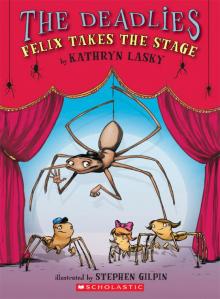 Felix Takes the Stage
Felix Takes the Stage Lucy
Lucy Lone Wolf
Lone Wolf Broken Song
Broken Song The Shattering
The Shattering The Crossing
The Crossing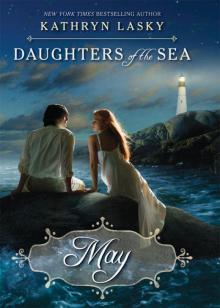 May
May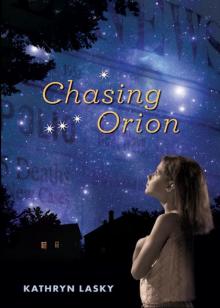 Chasing Orion
Chasing Orion Star Rise
Star Rise The River of Wind
The River of Wind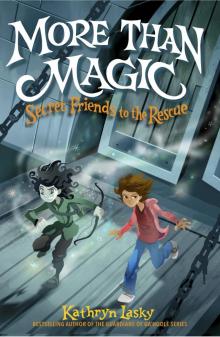 More Than Magic
More Than Magic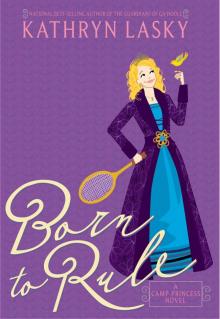 Born to Rule
Born to Rule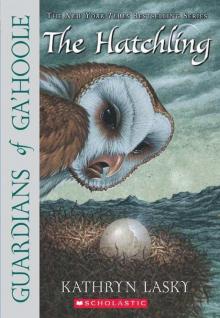 The Hatchling
The Hatchling The Rescue
The Rescue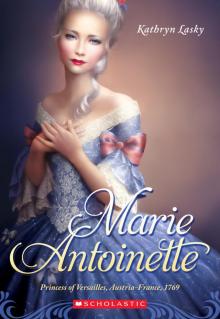 Marie Antoinette: Princess of Versailles, Austria - France, 1769
Marie Antoinette: Princess of Versailles, Austria - France, 1769 The War of the Ember
The War of the Ember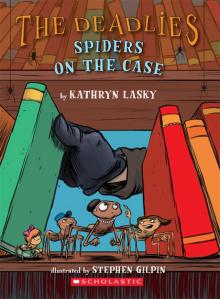 Spiders on the Case
Spiders on the Case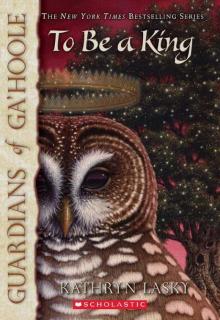 To Be a King
To Be a King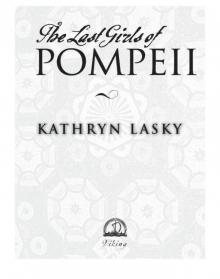 The Last Girls of Pompeii
The Last Girls of Pompeii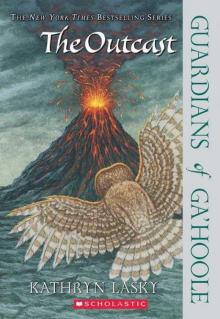 The Outcast
The Outcast Exile
Exile Night Witches
Night Witches Spirit Wolf
Spirit Wolf The Quest of the Cubs
The Quest of the Cubs Frost Wolf
Frost Wolf The Keepers of the Keys
The Keepers of the Keys The Extra
The Extra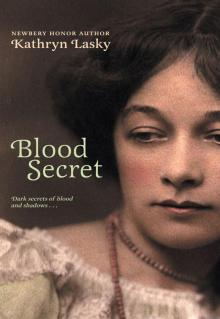 Blood Secret
Blood Secret Watch Wolf
Watch Wolf Blazing West, the Journal of Augustus Pelletier, the Lewis and Clark Expedition
Blazing West, the Journal of Augustus Pelletier, the Lewis and Clark Expedition The Capture
The Capture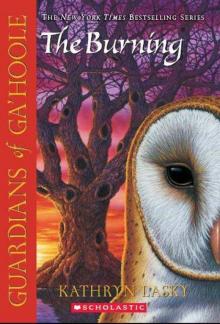 The Burning
The Burning The Journey
The Journey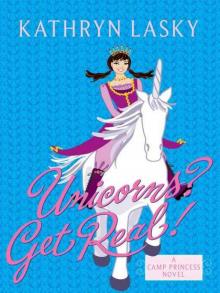 Unicorns? Get Real!
Unicorns? Get Real! The Escape
The Escape Star Wolf
Star Wolf Ashes
Ashes Wild Blood
Wild Blood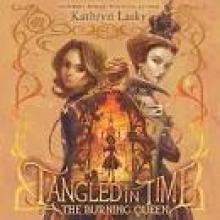 Tangled in Time 2
Tangled in Time 2 The Siege
The Siege Hannah
Hannah Elizabeth
Elizabeth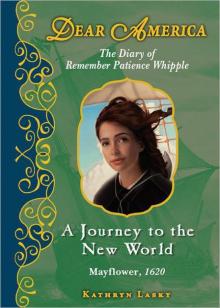 A Journey to the New World
A Journey to the New World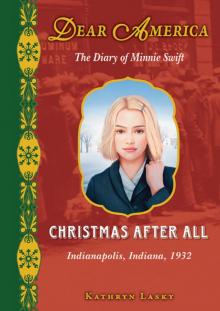 Christmas After All
Christmas After All Mary Queen of Scots
Mary Queen of Scots